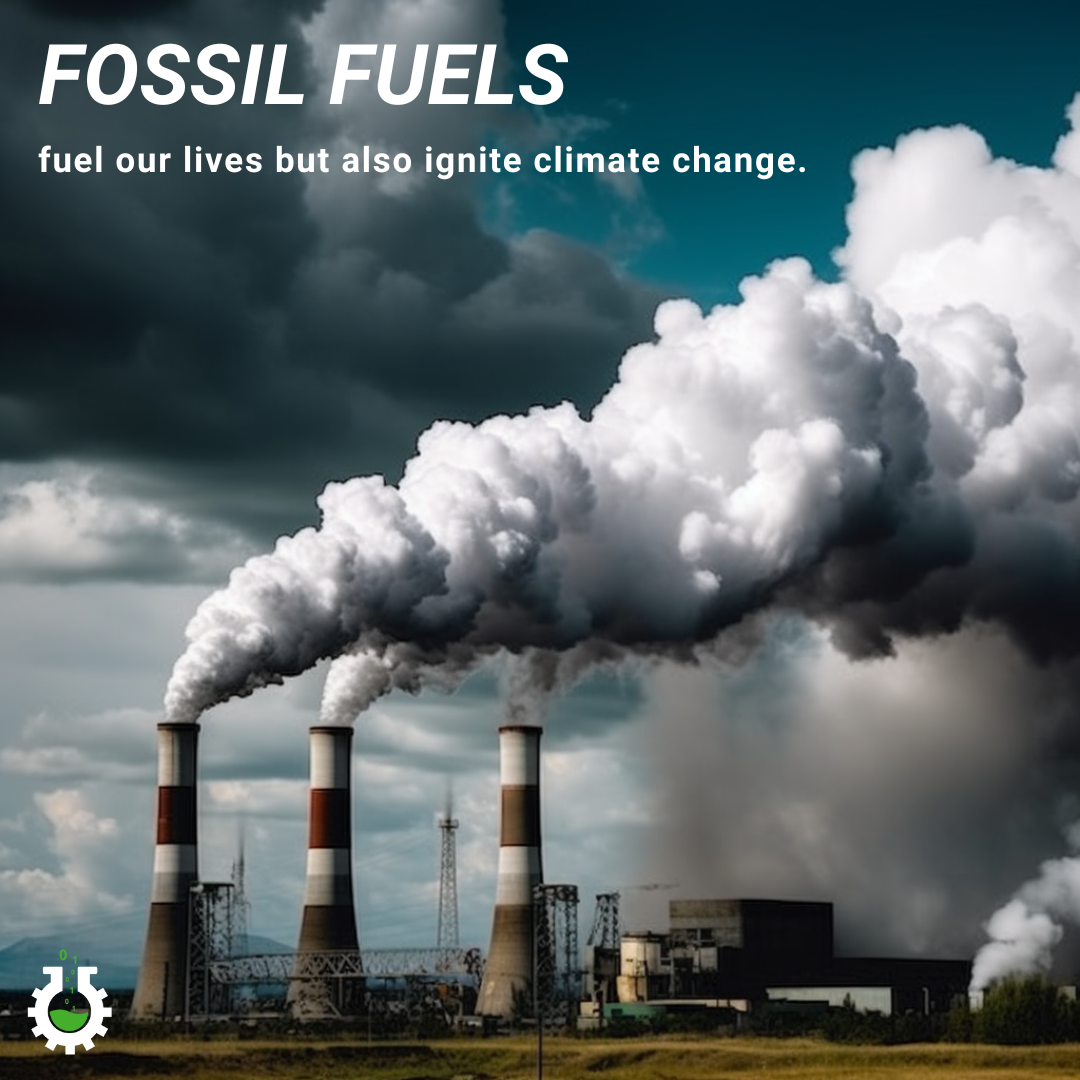August 4, 2023
Climate Change Poster Collection of the Day – Fossil Fuel
Book a Demo
Today’s Climate Change Poster Collection features Fossil fuels, which include coal, fuel oil, and natural gas, are hydrocarbons that have been formed from the remains of dead plants and animals. These fuels are a crucial part of our daily lives, powering everything from our homes and cars to the factories that manufacture the goods we use every day. However, the production and consumption of these fuels have both economic and environmental costs that are becoming increasingly hard to ignore.
One of the key characteristics of fossil fuels is that they are a non-renewable resource. Their formation takes millions of years, meaning they are not replenished within a human timescale. This fact alone makes the continued reliance on fossil fuels unsustainable in the long run. However, their impact goes beyond just the issue of supply.
Despite the known environmental impact, fossil fuels accounted for over 80% of the world’s total energy consumption in 2020. The primary use of these fuels is for generating electricity, heating homes, fueling vehicles, and manufacturing goods. However, the combustion of these fuels results in the production of approximately 21.3 billion tonnes of carbon dioxide annually. This significantly contributes to global warming, leading to more severe weather, rising sea levels, and other negative effects.
The extraction and consumption of fossil fuels also carry considerable economic and environmental costs. These include air and water pollution, land degradation, and public health issues. For instance, mining for coal can result in significant land degradation, while burning it can lead to air pollution. Similarly, oil drilling can lead to devastating oil spills, causing long-term damage to marine ecosystems.
The environmental impacts of fossil fuel usage have led to a growing global movement to transition to renewable energy. Solar, wind, and hydro power are just a few of the alternatives being explored. However, this shift is anticipated to be a lengthy process due to existing infrastructural dependence on fossil fuels. Transitioning to a cleaner energy future will require not just technological innovation, but also political will and societal change.
In conclusion, while fossil fuels have powered our societies for centuries, their environmental and economic costs are becoming increasingly clear. As we look to the future, it is crucial that we find ways to reduce our reliance on these non-renewable resources and transition to cleaner, more sustainable energy sources.
Discover an inspiring collection of climate change posters.



